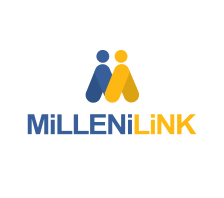Generation Z in the Workforce (Part 3)
An article from LinkedIn Talent Solutions titled “Does Gen Z Need Fixing? Or Just a Little Understanding?” sparked conversations within the walls of the Millenilink office. We spoke to three Millenilink Gen Z employees and tried to better understand the assumed ‘generation gap’.
This is our third installment, and we will be discussing the preferences and perceptions that Gen Z has on the topic of Flexibility and Workplace Environment and Culture! Make sure to read Part 1 and Part 2.
Meet our Gen Z interviewees:
Ayesha, Technical Recruiter: Ayesha recently graduated from York University where she attained a Bachelor of Human Resource Management degree. Ayesha held multiple industry-specific roles that were related to her career goals while still in high school. As Ayesha continues to work in Tech Recruitment, she has plans to pursue a CHRP certification.
Bolu, Web Marketing Intern: Bolu is entering her third year in Human-Computer Interaction at the University of British Columbia (UBC). Bolu has held 3 developer roles, as well as extra-curricular positions and activities in Social Media Marketing and Hackathon achievements that support her future career goals.
Madison, Tech Labor Market Research Intern: Madison is a 4th year student from Western University, pursuing a Bachelor of Management and Organizational Studies with a specialization in Consumer Behavior. Madison held an industry-related job while in school, and multiple extra-curricular roles related to specific career goals varying from sponsorship to journal review.
Flexibility and Work Environment
Strong similarity is seen between our subjects on the topic of flexibility and work environment. All our Millenilink Gen Zs value flexibility in the workplace and prefer a hybrid work model. They find task-based work more productive and satisfying than a rigid 9-5 schedule and they all alluded to the opinion that poor work-life balance leads to poor retention of Gen Z talent.
Referencing her desire for growth and learning opportunities in the workforce, Bolu said that ideally, she would be in a work environment with “open-concept work where I can pop over to the next person and see what they're doing, I don't like being in a cubicle just by myself”, a statement expressing her desire to be able to learn outside of assigned tasks, whether that opportunity comes from being able to sign-up for additional tasks in other areas she finds interesting, or by having the opportunity to collaborate with team members working on different projects.
Bolu said that she would prefer a role with a larger scope with the opportunity for more work to be assigned if she completes her assigned tasks, again this speaks to her desire to work in a collaborative and open environment with lots of opportunities and to be challenged and grow her skill set while contributing to a team.
Ayesha expressed her preference for a task or project-based schedule, putting in the hours necessary to complete the task, rather than ‘clocking in and out’ on a traditional 9-5 schedule. In terms of work location, Ayesha expressed how as a recruiter, remote work offers her the best flexibility for the key objective of getting into contact with candidates. When working remotely Ayesha has the ability to open up her schedule and accommodate the candidate’s availability, improving her productivity.
In a bit of contrast, Madison says that while in-office work for her is “ideal”, flexibility is still important, but the collaboration, learning and opportunities that are exclusive to in-person teamwork are “worth the trade-off” of convenience offered by remote and hybrid work. This is something that Ayesha also shared value in, “I would sacrifice my comfort for an opportunity that allowed me growth in my career”. Madison and Ayesha both expressed the challenge of balancing the desire to ‘enjoy their youth’ while also needing to make the most of their ‘career-defining years’.
Madison and Ayesha (22 and 23, respectively) missed out on core years of their youth due to the COVID-19 pandemic, they both expressed that with the pandemic, they feel that the start of their careers ‘snuck up on them’, and that they feel like they have to hit the ground running, that there’s no time for them to waste. Flexibility may mean more to Gen Z than other generations before them, but it isn’t coming at the price of their desires for career development.
There is one more part to come in this series: Learning and Growth in the Workplace (and make sure you check out part 1 and part 2).
Subscribe to our newsletter to make sure you don’t miss the last instalment of Gen Z in the Workforce!


